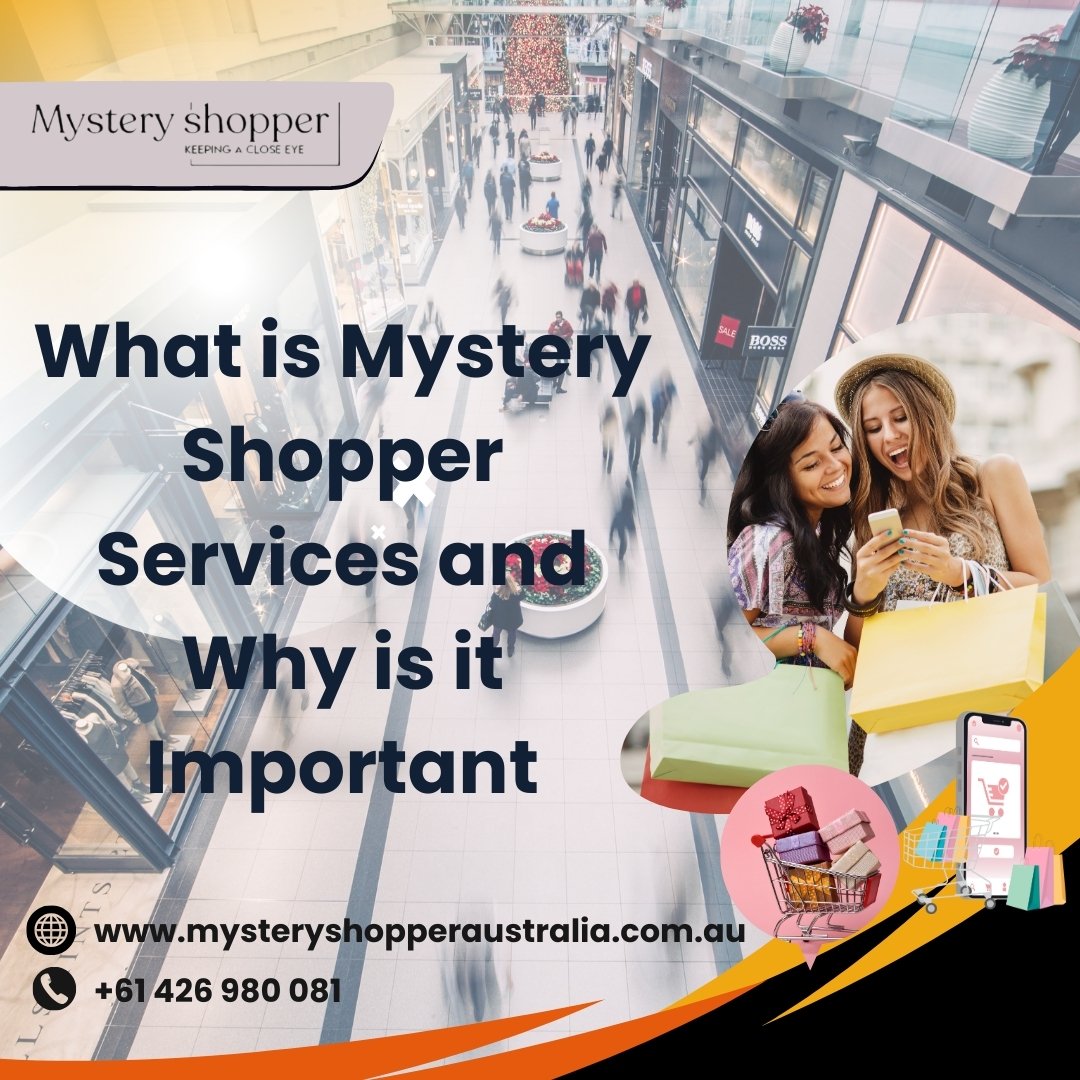Have you ever wandered through a store, observing the layout and customer service while secretly wishing you could get paid for your insights? Welcome to the intriguing world of mystery shopping! This unique opportunity allows individuals to step into the shoes of a customer and evaluate businesses based on their experiences. But it’s not just about gathering information; it plays a vital role in helping companies improve their services. With each hidden visit, mystery shoppers provide valuable feedback that shapes customer experiences across industries.
For aspiring shoppers and job seekers alike, understanding earnings in this field is crucial. How much can you really expect to make as a mystery shopper in Australia? Is it worth your time and effort? In this article, we will explore what drives compensation, from project complexity to geographical factors. Whether you’re looking for a side hustle or embarking on an exciting new career path, knowing how much you’ll earn can help set your expectations. So, let’s dive deeper into the world of mystery shopping and uncover what makes it both rewarding and challenging!
What is Mystery Shopping?
Mystery shopping is a method used by businesses to gauge the quality of their customer service, product availability, and overall shopping experience. Essentially, mystery shoppers pose as ordinary customers while completing tasks like making purchases or asking questions. After their interactions, they provide detailed reports summarizing their experiences. This process helps companies identify strengths and areas for improvement in their service offerings. For instance, a mystery shopper might visit a retail store to evaluate how well employees engage with customers or whether promotional displays are adequately maintained.
In the realm of market research, mystery shoppers play a crucial role by acting as the eyes and ears of organizations seeking honest feedback about their operations. They help businesses ensure that customer service standards are upheld across various locations and identify potential training needs for staff members. For example, a fast-food chain may use mystery shoppers to assess how quickly orders are processed during peak hours and whether employees follow health and safety protocols properly. This feedback not only supports individual business performance but also contributes valuable insights into broader consumer trends.
The impact of mystery shopping extends beyond mere performance evaluation; it serves as an essential tool for companies looking to maintain competitiveness in today’s dynamic marketplace. With so many choices available to consumers, delivering an exceptional shopping experience is vital for brand loyalty and reputation management. Businesses that actively engage with the insights provided by mystery shoppers can fine-tune their practices based on real customer experiences rather than relying solely on sales data or generic surveys.
As such, anyone considering diving into the world of mystery shopping should understand its significance within market research ecosystems. It’s not just about visiting stores for extra cash; it’s about contributing to improving customer experiences on local and national scales—making every assignment feel like an important mission rather than just another gig.
Factors Influencing Earnings
When it comes to mystery shopping, various factors play a pivotal role in shaping the earnings potential for individuals. One of the most significant influences is experience level and tenure in the field. Beginners often start at lower pay rates as they navigate their first assignments and gain familiarity with the requisite skills. Over time, as shoppers accumulate more experience and establish a reputation for thoroughness and reliability, they may qualify for higher-paying jobs or premium assignments. For instance, a shopper who has completed multiple food service evaluations may find themselves earning more than someone fresh to the industry simply due to their enhanced understanding of the expectations involved.
The type and complexity of assignments also greatly affect how much mystery shoppers can earn. Different sectors offer varying pay scales; retail environments might provide simpler tasks that generally lead to lower fees compared to more intricate evaluations in sectors like hospitality or healthcare. For example, assessing customer service at a high-end restaurant likely requires greater attention to detail and nuanced feedback than a visit to a fast-food outlet, thus justifying higher compensation for mystery shoppers in specialized roles. Furthermore, some projects might require additional responsibilities such as detailed reporting or interactions with staff across multiple locations, increasing both difficulty and reward.
Geographic location plays an equally crucial role in determining earnings throughout Australia. Major cities like Sydney and Melbourne are often hotspots for market research opportunities, leading to competitive compensation packages due to higher demand from businesses seeking consumer insights. In contrast, rural areas may present fewer opportunities or lower payment rates simply because there are fewer companies conducting mystery shopping initiatives there. Thus, aspiring mystery shoppers need to consider not only where they live but also how regional market trends could impact their overall earning potential within this unique line of work.
By understanding these key influencing factors—experience level, assignment types, and geographic dynamics—individuals can better gauge what they might realistically earn as mystery shoppers across Australia’s diverse landscape. This knowledge proves invaluable for anyone aiming to turn this side hustle into a profitable venture tailored to their personal circumstances and ambitions.
Average Earnings of Mystery Shoppers
The earnings of mystery shoppers in Australia can vary significantly based on several factors, leading to a diverse range of compensation structures. Typically, mystery shoppers are compensated either through hourly rates or project fees. On average, mystery shoppers may earn between $20 to $50 per hour, with some assignments offering flat fees ranging from $10 to over $100 depending on the complexity and requirements involved. For instance, a straightforward grocery store evaluation may yield around $30, while more intricate assignments that require detailed reports might command fees up to $80 or more.
When compared with similar side hustles in Australia, the earning potential of mystery shopping remains competitive but varies widely. For example, delivery drivers for food services such as UberEats may expect earnings of approximately $15 to $25 per hour plus tips; however, they often incur costs related to vehicle maintenance and fuel. Conversely, freelance tasks like pet sitting or tutoring can yield higher hourly rates upwards of $40 but come with different time commitments and scheduling constraints. This makes mystery shopping an appealing option for those wanting flexible hours while still maintaining decent income prospects.
Additionally, it’s important to consider the frequency and consistency of assignments when discussing average earnings. While some mystery shoppers might secure multiple jobs each week resulting in a robust monthly income—potentially exceeding $1,000—others may find sporadic work due to market saturation or limited available opportunities in their geographic region. As such, aspiring mystery shoppers should approach this endeavor with realistic expectations regarding both frequency and overall compensation relative to their investment of time and effort.
In wrapping up this section, it’s evident that while there is significant potential for earnings as a mystery shopper in Australia, these figures depend largely on individual circumstances including location, assignment type, and personal commitment level. By understanding these elements clearly, aspiring shoppers can better gauge whether this unique side hustle aligns with their financial needs and lifestyle aspirations.
Bonuses and Incentives
In the world of mystery shopping, earnings extend beyond just hourly rates or project fees, as many companies offer enticing bonuses and incentives for their dedicated shoppers. For instance, some organizations may provide performance-based bonuses to those who consistently deliver detailed reports or accomplish certain metrics during their assignments. These bonuses can range from a nominal fee added to the base pay to significant amounts that can double or even triple a shopper’s income for that specific task. Imagine receiving an additional $20 to $50 for completing a well-executed assignment that showcased your meticulous attention to detail—that’s money that can add up over time!
Moreover, referrals are another way aspiring mystery shoppers can boost their earnings. If a shopper brings new participants into the fold through word-of-mouth recommendations, they might receive referral bonuses as a token of appreciation from the company. This not only enhances earnings but also fosters community among mystery shoppers who often share insights and tips on navigating different tasks effectively. If you successfully refer four friends who become active shoppers, for example, those bonus payments could greatly increase your monthly take-home income.
Beyond financial incentives, there are also valuable perks associated with mystery shopping gigs that shouldn’t be overlooked. Many companies offer product discounts or reimbursements on purchases made during assignments—think free meals at restaurants or complimentary merchandise from retail stores where you evaluate service quality! This unique form of compensation allows mystery shoppers to enjoy experiences they would likely pay full price for otherwise while affording them a taste of various products and services they might love. Thus, these added benefits can significantly enhance the overall value one gains from being a mystery shopper in Australia.
Understanding these nuances about bonuses and perks helps future shoppers set realistic expectations about their potential earnings in this exciting field. In the end, exploring opportunities tailored toward individual skills and interests not only paves the way towards earning money but also makes each assignment an adventure filled with discovery and new experiences!
How to Get Started as a Mystery Shopper
If you’re intrigued by the idea of becoming a mystery shopper, the first step is to find reputable companies that offer legitimate assignments. Start by researching established market research firms known for their mystery shopping programs. These organizations typically maintain consistent quality and integrity in their operations, which helps protect you from scams. It’s also beneficial to join online forums or social media groups dedicated to mystery shoppers; these communities can share valuable insights about potential employers and job leads.
To excel in this side hustle, there are certain skills and qualities that will enhance your effectiveness as a mystery shopper. First, keen observational skills are paramount; being able to notice the small details in store environments and staff interactions can lead to comprehensive reports. Strong written communication skills are equally important for detailing your experiences clearly and concisely. Furthermore, having a degree of adaptability allows you to navigate various situations during assignments—every store may have a different set of expectations or challenges.
Additionally, consider brushing up on your customer service understanding; recognizing what exceptional service looks like will help you gauge employees’ performances effectively. Organizational skills will also aid in managing the timelines for reporting and documenting findings after conducting visits. While it might seem straightforward, effective time management ensures that you’re not only meeting deadlines but also providing an accurate representation of the service provided.
Finally, remember that persistence is key when starting out. It may take time after submitting applications before landing your first assignment—and even longer to develop credibility among brands and clients—and staying engaged with fellow mystery shoppers can help sustain motivation! Embrace any feedback constructively as it will serve improve both your assessment techniques and future evaluations while bolstering your reputation within this nuanced industry.
Common Misconceptions about Mystery Shopping Earnings
Many aspiring mystery shoppers enter the field with grand expectations, often believing that this gig can become a substantial source of income. A common myth is that seasoned mystery shoppers rake in exorbitant amounts simply by visiting stores and providing feedback. While it’s true that some individuals may enjoy a lucrative side hustle, the reality is far more nuanced. Pay rates for mystery shopping can vary significantly, and relying on this as a primary source of income is not only unrealistic but potentially disappointing.
One major factor influencing earnings is the type of assignment being undertaken. For instance, a detailed evaluation in a high-end restaurant might yield higher compensation than a quick visit to a convenience store. Furthermore, location plays a critical role; urban areas tend to have more opportunities—and possibly higher pay—compared to rural locations. The complexity of assignments also affects payment; projects requiring more specific evaluations or longer commitments typically offer better rewards than simpler tasks. Thus, while exciting prospects abound, aspiring shoppers should approach them with clear eyes regarding their earning potential.
Additionally, new mystery shoppers often underestimate the necessary investment in time and effort required for successful assessments. Beyond just completing assignments, there are training requirements and report-writing obligations that can consume significant time without additional compensation. The variability in earnings means that those who wish to succeed in this field must be willing to accept periods of low income or even non-compensated work while they build their skills and experience.
In summary, debunking the misconceptions around mystery shopping earnings requires an understanding of both the diverse factors at play and the real dedication involved in succeeding within this niche job market. By fostering realistic expectations regarding income potential, future mystery shoppers can approach this endeavor not merely as a path to riches but rather as an intriguing avenue for exploration within market research.
Resources for Aspiring Mystery Shoppers
If you’re keen on diving into the world of mystery shopping, having access to the right resources is essential. Numerous platforms exist to connect aspiring shoppers with available gigs. In addition to online job boards, numerous books and courses can help you sharpen your skills as a mystery shopper. Titles such as *“The Complete Guide to Mystery Shopping”* offer valuable insights into the industry, sharing tips on how to complete assignments effectively and responsibly. Moreover, various online courses—often available through educational platforms like Udemy or Coursera—can provide structured training about observational techniques and reporting standards necessary for success in this field.
Joining communities devoted to mystery shopping can also enhance your learning experience. Platforms like Facebook have dedicated groups where members share experiences, tips, and even job postings specific to mystery shopping in Australia. Engaging with seasoned professionals offers invaluable insider knowledge that can boost your confidence as you begin this side hustle. Networking within these communities may lead you not only to additional job opportunities but also support from individuals who have navigated the potential pitfalls.
As you venture into the role of a mystery shopper, ensure that you remain informed and engaged with ongoing learning resources. Keeping up-to-date with industry trends through blogs, podcasts, or newsletters can further enrich your understanding and adapt your approach over time—all vital components of becoming a successful mystery shopper in today’s dynamic market landscape.
Final Thoughts on Mystery Shopping Earnings
In summary, mystery shopping in Australia offers diverse earning opportunities. Your income can vary widely based on experience, the type of assignments you accept, and your location. While some shoppers find it to be a worthwhile side hustle, it’s important to manage your expectations. Earnings can fluctuate significantly, making it crucial to consider what level of commitment you’re willing to invest.
As you explore this intriguing avenue, approach it with an open mind and realistic goals. Research reputable companies and acquire the skills necessary for success. With careful consideration and enthusiasm, mystery shopping could become a rewarding addition to your professional journey!






